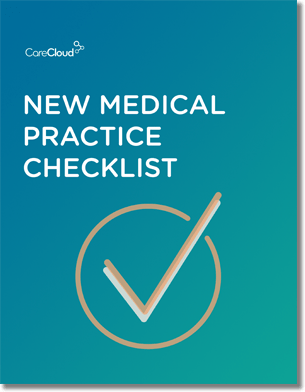From Incubate Miami to the Meetup.com groups that keep popping up in my inbox, Miami’s vibrance is spilling over into its entrepreneurial groups, which are clustering in industrial parks and business sectors from the airport to Little Haiti.
At CareCloud, we both admire and support entrepreneurial efforts in South Florida, particularly in the healthcare sector. We’ve written about it extensively, and have even participated in events like IBM’s SmartCamp at Florida International University.
Therefore, it’s not surprising that we’ve invited Dr. Jerry Haar, Director of FIU’s Pino Entrepreneurship Center, and Dr. Nancy Borkowski, Director of Health Management Programs at the FIU College of Business to chat about the Pino Center, why the healthcare industry is in need of change and what issues its entrepreneurs should look to address.
Jerry, what kind of programs does the Pino Center offer? Do any of them relate directly to healthcare or medical technology/health IT?
The Pino Center (www.entrepreneurship.fiu.edu) offers a broad range of workshops, webinars, networking events, conferences, publications and counseling services, collaborating, as well, with a range of local partners. We partnered with IBM for their SmartCamp, which took place in May, and in August we will be a co-sponsor of AT&T’s Hackathon.
FIU’s College of Business offers two graduate health-related degrees. The first is our Healthcare MBA, which has as had an overwhelming response from the community since it was launched in Fall 2010. Our Healthcare MBA is unique in that there are only 2 other programs in the country that offer a similar degree. While most institutions of higher education offer an MBA with a health policy/management track, our degree is industry-specific. This means that all the various disciplines (finance, marketing, ops management, etc.) theories and concepts are applied specifically to the healthcare industry. We use and reference other industries but only as benchmarks or possible best practices.
Our second degree is an MS in Health Informatics & Management Systems. This area of healthcare is growing and will continue to do so for the next 10 years. As the industry builds complex databases and states develop health information exchanges, the program educates physicians, nurses and health managers, as well as IT professionals to take on new roles as leaders with sophisticated expertise in health services organizations. The ability to mine data is becoming so important that it’s recognized as an executive-level responsibility.
Nancy, why is healthcare so ready for a change?
Healthcare has been ready for (and needed) change since the Flexner Report was published in 1910. Our system is now at the point that all agree that without a sweeping and complete change, it will be financially unsustainable in the very near future. The U.S. spends more money per capita but with some of the lowest care outcomes when compared to other industrialized countries. We have an inequitable distribution of resources causing millions of our citizens not to have access to adequate healthcare. Currently, the federal government spends $.22 of each dollar of income tax collected on healthcare, yet we have services that are unavailable to approximately 50 million uninsured Americans.
What do you consider to be the disconnect in healthcare between technology and patient experience? How can technology aid the clinician at the point of care?
Up to the present time, technology in healthcare was used for two extreme points on the continuum for delivering care. It was used either for billing/reimbursement purposes or advancing medical procedures. It was not until recently that the industry made the connection that technology could enable the provider to deliver higher quality, efficient services to patients. It could be viewed as if the two sides – clinical and administration – did not have the same goal: enhancing patient care at the right price.
This frame of reference is understandable considering how the system is designed under the fee-for-service reimbursement model – do more and get paid more with no question as to whether these “do more” services equate to better outcomes for the patient. Today, technology can assist providers with delivering effective and efficient care. For example, consider how mobile health technology and customized consumer health information can enhance the patient’s experience as well as gather data for clinicians to share best practices quickly.
What kinds of healthcare problems should entrepreneurs look to solve/address?
With reimbursements being tied to quality under the new value-based purchasing (VBP), a concept not previously applied in the healthcare field, providers need to document how they are meeting (or better – surpassing) national benchmarks for delivering patient care and their related outcomes. With the vast amount of data being collected, the area is ripe for entrepreneurs to develop technology that will assist providers in delivering effective care as efficiently as possible.
Stay tuned for part 2 of this Q&A next week, where Nancy and Jerry delve deeper into the effect of healthcare startups on Miami’s economy!

Do you know what you need when setting up a new medical practice?


